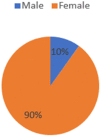Evidence generation for sustained impact in the response to gender-based violence: lessons from the SRHR Africa Trust Zimbabwe
- PMID: 37746322
- PMCID: PMC10513175
- DOI: 10.3389/fgwh.2023.1135393
Evidence generation for sustained impact in the response to gender-based violence: lessons from the SRHR Africa Trust Zimbabwe
Abstract
Gender-based violence (GBV) is a pervasive problem in Zimbabwe, affecting women and girls. The types of GBV that are prevalent in Zimbabwe include sexual violence, intimate partner violence, and child marriage. The issue of evidence generation remains crucial in developing interventions that are tailor-made for GBV response. In an attempt to build pathways for the strengthening of GBV programming and to influence policy change, the Sexual and Reproductive Health and Rights (SRHR) Africa Trust (SAT) Zimbabwe conducted a secondary data review of GBV cases recorded in 2018 and 2019 in collaboration with the Zimbabwe Republic Police (Victim Friendly Unit) to understand the incidence of and the driving factors underlying GBV in Zimbabwe, including context-specific information with regard to sexual violence and an overview of perpetrator types. The study proffered recommendations that focus on the importance of improving GBV reporting and programming in Zimbabwe. The study establishes that the driving factors for physical violence include poverty, infidelity, and alcohol and drug abuse, while sexual violence is perpetrated by intimate partners and close relatives, among other driving factors.
Keywords: GBV; evidence; police; programming; reporting.
© 2023 Mazhambe and Mushunje.
Conflict of interest statement
The authors declare that the research was conducted in the absence of any commercial or financial relationships that could be construed as a potential conflict of interest.
Figures
Similar articles
-
Men's conceptualization of gender-based violence directed to women in Alexandra Township, Johannesburg, South Africa.BMC Public Health. 2022 Nov 30;22(1):2235. doi: 10.1186/s12889-022-14616-5. BMC Public Health. 2022. PMID: 36451124 Free PMC article.
-
Understanding the role of intimate partner violence on HIV transmission in Zimbabwe: Secondary data analysis of data from the Zimbabwe demographic survey 2015-2016.Health Promot Perspect. 2023 Jul 10;13(2):113-119. doi: 10.34172/hpp.2023.14. eCollection 2023. Health Promot Perspect. 2023. PMID: 37600546 Free PMC article.
-
Prevalence and associated factors of gender based violence among Baso high school female students, 2020.Reprod Health. 2021 Dec 14;18(1):247. doi: 10.1186/s12978-021-01302-9. Reprod Health. 2021. PMID: 34906175 Free PMC article.
-
A Profile of Gender-Based Violence Research in Europe: Findings From a Focused Mapping Review and Synthesis.Trauma Violence Abuse. 2019 Oct;20(4):470-483. doi: 10.1177/1524838017719234. Epub 2017 Jul 13. Trauma Violence Abuse. 2019. PMID: 29334031 Review.
-
Sexual and Reproductive Health Outcomes of Violence Against Women and Girls in Lower-Income Countries: A Review of Reviews.J Sex Res. 2021 Jan;58(1):1-20. doi: 10.1080/00224499.2019.1707466. Epub 2020 Jan 4. J Sex Res. 2021. PMID: 31902238
References
-
- UNWomen. Measuring the shadow pandemic: violence against women during COVID-19. UNWomen report (2021). Available at: https://data.unwomen.org/publications/vaw-rga (Accessed November 15, 2022).
-
- IASC GBV Guidelines. GBV definitions. IASC GBV guidelines (2023). Available at: https://gbvguidelines.org/en/ (Accessed August 1, 2023).
-
- Jansen HAFM. Measuring prevalence of violence against women: key terminology. kNOwVAWdata. Bangkok: UNFPA Asia and the Pacific Regional Office (2016). Available at: https://asiapacific.unfpa.org/en/publications/violence-against-women-key.... (Accessed April 22, 2023).
-
- Zimbabwe National Statistics Agency and ICF International. Zimbabwe Demographic and Health Survey 2015: final report (2016). Rockville, MD: Zimbabwe National Statistics Agency (ZIMSTAT) and ICF International.
Publication types
LinkOut - more resources
Full Text Sources
Research Materials




